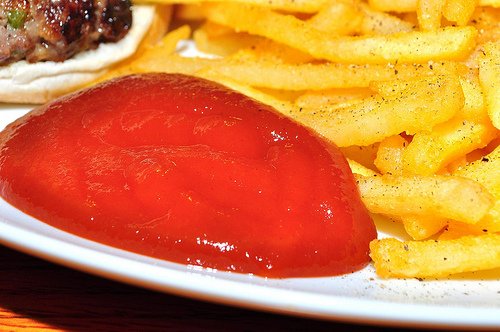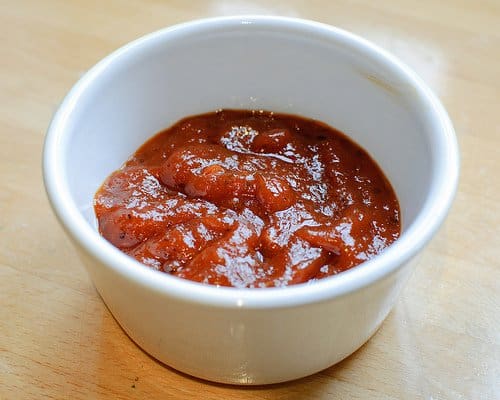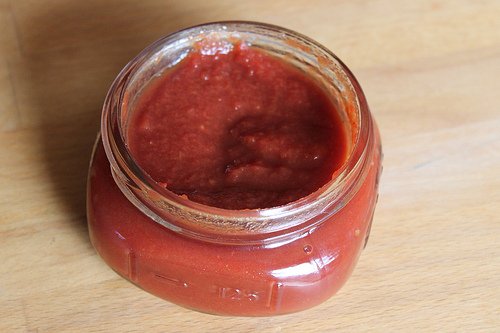Can you freeze ketchup? You might not know this, but ketchup is one of the best condiments to freeze because it keeps so well in extremely low temperature. As a staple condiment, most households have bottles of ketchup in the pantry. Although this condiment has a long shelf life, you can extend the shelf life of ketchup that is nearing its expiry date by freezing it.
People freeze ketchup for different reasons. Some do it because they use ketchup sparingly, others buy in bulk. An unopened bottle of ketchup will keep for 2 years. Kept in the fridge, an opened bottle of ketchup will keep fresh for a year. When kept in the freezer, ketchup will keep indefinitely.

The great thing about freezing ketchup is that there’s little change in the flavor once it’s defrosted. However, there is a good chance that the consistency will be thinner but it’s still usable. Ketchup is high in water so it freezes like ice. By the time it’s defrosted, the ingredients will start separating and the consistency is not the same as a freshly opened bottle of ketchup. If this is the case, give the defrosted ketchup a good stir to incorporate the ingredients. Here is a step by step guide on how can you freeze ketchup:
How to Freeze Ketchup?
Just like any type of food, ketchup is prone to freezer burn so pack the condiment properly for long-term storage. Never freeze whole bottles of ketchup, except those packed in plastic bottles. Again, ketchup has high water content. Freezing it in its original packaging will cause the bottle to explode as the liquid within the condiment freezes! For ketchup kept in a squeeze or plastic bottle, just stick the product in the freezer, no prep needed.
But if you’re freezing ketchup in smaller batches or in single serving portions, you can use a silicon mold or an ice tray to do this. Just pour the ketchup into the mold or tray, making sure each slot is filled evenly. Give the silicon mold or ice tray a gentle shake to keep the surface even then stick in the freezer.
Wait for an hour or two until the ketchup is frozen solid. Then, take the ice cube tray or silicone mold out and either place the container in a large, heavy-duty resealable plastic bag. To keep the condiment in single serving portion, pop the frozen ketchup and then place them one by one in a large plastic bag. Either way, the plastic bag will protect the condiment from freezer burn and moisture exposure.

You can also use a rigid plastic container in place of a resealable plastic bag to pack the frozen ketchup. Label the container with the storage date, stick the whole thing back in the freezer and you’re done! Whenever you need a serving of ketchup, you can simply take a couple of portion out instead of defrosting the whole container.
How to Defrost Frozen Ketchup?
To defrost frozen ketchup, just transfer the condiment from the freezer to your kitchen counter. Leave the product to thaw at room temperature for an hour or two. Once it’s thawed, there’s a good chance that separation to set in or the consistency will turn runny. This is normal.
Give the ketchup a good stir to incorporate the ingredients again. The ketchup is now ready to use. The same thing goes for frozen ketchup kept in squeeze bottles. Just give the container a good shake to mix the ketchup to the right consistency.

Summary
Ketchup has a long shelf life but there are times when you need to freeze this popular condiment to prevent waste or spoilage. Now that you know how can you freeze ketchup, you can store excess condiment in the freezer without worrying about flavor changes after thawing.